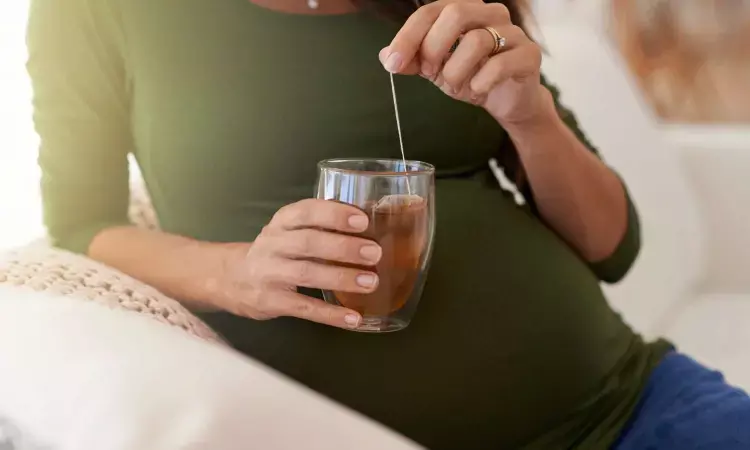- Home
- Medical news & Guidelines
- Anesthesiology
- Cardiology and CTVS
- Critical Care
- Dentistry
- Dermatology
- Diabetes and Endocrinology
- ENT
- Gastroenterology
- Medicine
- Nephrology
- Neurology
- Obstretics-Gynaecology
- Oncology
- Ophthalmology
- Orthopaedics
- Pediatrics-Neonatology
- Psychiatry
- Pulmonology
- Radiology
- Surgery
- Urology
- Laboratory Medicine
- Diet
- Nursing
- Paramedical
- Physiotherapy
- Health news
- Fact Check
- Bone Health Fact Check
- Brain Health Fact Check
- Cancer Related Fact Check
- Child Care Fact Check
- Dental and oral health fact check
- Diabetes and metabolic health fact check
- Diet and Nutrition Fact Check
- Eye and ENT Care Fact Check
- Fitness fact check
- Gut health fact check
- Heart health fact check
- Kidney health fact check
- Medical education fact check
- Men's health fact check
- Respiratory fact check
- Skin and hair care fact check
- Vaccine and Immunization fact check
- Women's health fact check
- AYUSH
- State News
- Andaman and Nicobar Islands
- Andhra Pradesh
- Arunachal Pradesh
- Assam
- Bihar
- Chandigarh
- Chattisgarh
- Dadra and Nagar Haveli
- Daman and Diu
- Delhi
- Goa
- Gujarat
- Haryana
- Himachal Pradesh
- Jammu & Kashmir
- Jharkhand
- Karnataka
- Kerala
- Ladakh
- Lakshadweep
- Madhya Pradesh
- Maharashtra
- Manipur
- Meghalaya
- Mizoram
- Nagaland
- Odisha
- Puducherry
- Punjab
- Rajasthan
- Sikkim
- Tamil Nadu
- Telangana
- Tripura
- Uttar Pradesh
- Uttrakhand
- West Bengal
- Medical Education
- Industry
No effect of Caffeine consumption on pregnancy or live birth rate after fertility treatments in women

China: In a recent study published in Acta Obstetricia et Gynecologica Scandinavica, the researchers found no association between caffeine consumption and pregnancy or live birth rate of fertility treatments in women (in vitro fertilization (IVF)/intracytoplasmic sperm injection (ICSI)).
The study further revealed that women's alcohol consumption was linked with decreased pregnancy rate after treatments in cases where weekly consumption was greater than 84 g (approximately 7 standard drinks).
Also, men's alcohol consumption was associated with a decreased live birth rate after fertility treatments in women when weekly consumption was greater than 84 g.
The analysis included all relevant studies published before July 15, 2022. A total of 7 studies on caffeine consumption and 9 studies on alcohol consumption were included, with a total of 26,922 women and/or their spouses who underwent fertility treatment.
Compared with abstainers, the chance of achieving a pregnancy after fertility treatment decreased by 7% for women who consumed 84 g of alcohol per week, and the chance of partners achieving a live birth decreased by 9% for men who consumed 84 g of alcohol per week.
The study led to the following findings:
- The systematic review included twelve studies on caffeine consumption and 14 studies on alcohol consumption, of which seven and nine were eligible for the meta-analysis. These studies included 26 922 women and/or their spouses who underwent IVF/ICSI treatment.
- Women's and men's caffeine consumption was not significantly associated with the pregnancy rate and the live birth rate of IVF/ICSI.
- Maternal alcohol consumption was negatively associated with pregnancy after IVF/ICSI treatment.
- Paternal alcohol consumption was negatively associated with partner's live birth after IVF/ICSI treatment.
- Compared with abstainers, the chance of achieving a pregnancy after IVF/ICSI treatment decreased by 7% for women who consumed 84 g alcohol per week, and the chance of partners achieving a live birth decreased by 9% for men who consumed 84 g alcohol per week.
"Couples should be aware that some modifiable lifestyle factors such as drinking habits may affect their fertility treatment outcomes. But how these factors impact the reproductive system still needs more research to elucidate," said corresponding author Yufeng Li, MD, of Tongji Hospital, in China.
Reference:
Wentao Rao,Yuying Li,Nijie Li,Qingyun Yao,Yufeng Li First published: 19 October 2022 https://doi.org/10.1111/aogs.14464
Dr Kamal Kant Kohli-MBBS, DTCD- a chest specialist with more than 30 years of practice and a flair for writing clinical articles, Dr Kamal Kant Kohli joined Medical Dialogues as a Chief Editor of Medical News. Besides writing articles, as an editor, he proofreads and verifies all the medical content published on Medical Dialogues including those coming from journals, studies,medical conferences,guidelines etc. Email: drkohli@medicaldialogues.in. Contact no. 011-43720751


